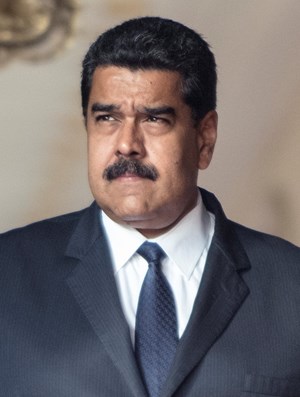Venezuelan oil industry fears losing ground if U.S. revives sanctions, sources say
(Bloomberg) – Venezuelan President Nicolás Maduro is betting the U.S. won’t revive all its sanctions as he backslides on a promise of free elections. Inside the nation’s oil industry, local operators are worried he’s wrong.
Oil and gas firms and contractors fear their nascent deals for everything from imports of new construction equipment to their connections with U.S. banks will break off if Maduro’s ban of opposition candidates in this year’s election prompts the U.S. to allow a six-month suspension on sanctions to expire in April.
“This is a major setback for small firms, which live on a day-to-day basis for their cash flow,” said Rubén Pérez, director at Chemstrategy, an energy consultancy in Caracas. “Bigger companies have previewed this scenario and can better resist. Sentiment moves between cautious optimism and grim faces.”
Reimposed sanctions would cause Venezuela’s oil production to fall 30% to 600,000 bpd in a matter of months, according to Fernando Ferreira, director of geopolitical risk at Rapidan Energy Group. Data compiled by Bloomberg show the country’s production in January increased 22% from a year earlier after the US eased sanctions in October, allowing U.S. companies to engage with state-owned Petróleos de Venezuela SA.
The nation’s revenue from oil, meanwhile, would rise between $2 billion and $3 billion this year if sanctions return — compared to increasing $6 billion to $8 billion without them, Morgan Stanley analyst Katherine Marney wrote in a note on Tuesday.
Venezuela’s top court ruled last month that opposition presidential candidate María Corina Machado was ineligible to hold office, flouting pressure from the U.S. to allow her to run against Maduro. The U.S. responded by reimposing sanctions on gold exports and saying it could reinstate oil sanctions in April if Venezuela doesn’t correct course.
Venezuela Oil Minister and PDVSA head Pedro Tellechea said last week that the country is “prepared” if oil sanctions are renewed and “open to dialog” on the issue.
But U.S. President Joe Biden’s administration has its own reasons for not ending the sanctions. A steadier supply of the South American nation’s crude may help keep global oil prices — and more importantly, US gasoline prices — in check. Biden, potentially facing a tough reelection campaign against Donald Trump, also needs to find ways to stem the tide of migration to the U.S. A healthier Venezuelan economy may slow the outflows.
Still, four oil industry executives who spoke to Bloomberg on condition of anonymity said the renewed tensions are making them wonder whether their recent investments will be squandered. They asked not to be identified for fear of retaliation from the government.
Some local firms had sent representatives to the U.S. to reinstate financial and commercial relations with U.S.-based suppliers. Slowly, small and mid-sized oil-service companies were making progress, including on possible imports of construction equipment.
PDVSA had also engaged in purchases for its facilities via third parties, according to a person familiar with the matter who asked not to be identified discussing private deliberations. PDVSA didn’t immediately respond to a request for comment.
License 44, as the U.S. sanctions relief is known, was seen by local companies as a “positive boost for work demand starting first quarter 2024, but this hasn’t been fulfilled yet,” said César Parra, head of engineering and construction firm DICCA. Maintenance work and investment are needed in Zulia state, Venezuela’s oil cradle, where his company operates, he said.
Since October, when the sanctions were eased, Trinidad’s state-owned National Gas Co. and Shell Plc were granted exporting licenses, while Repsol SA and Maurel et Prom signed new deals to ramp up production. Delegations from Mexico’s Pemex, Bolivia’s YPFB and Indonesia’s Pertamina visited the country to review oil and gas partnerships, although no major deals were signed.
It’s not clear if these deals would survive a re-imposition of sanctions. Trinidad received assurances from the U.S. government in late January that a license on a key gas-import project involving Shell and Venezuela will stand, according to a report.
“We’re not directly affected,” Trinidad and Tobago Prime Minister Keith Rowley said in a report in the Trinidad Guardian.



